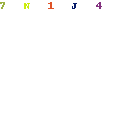The Republic of Korea (informally known as South Korea) is a state in East Asia located on the Korean Peninsula.
Holidays in Korea are sure to leave incredible impressions in your memory. It will be especially interesting for young people here, but fans of a relaxing holiday will also be able to spend their holidays in South Korea in an interesting, fun and useful way.
Pros and Cons of South Korea
South Korea offers guests a varied vacation, which has both pros and cons.
Advantages
- Excursion programs are really interesting
- High organization of recreation and responsibility of all staff
- The rest is very diverse, you can have fun, and lie on the beach, and go skiing
- There are many shopping opportunities
- The main streets are very clean.
- Lots of people love the local cuisine.
Disadvantages
- There are not very many hotels, especially in popular resorts – you need to book places well in advance
- The trip will not be cheap, and South Korea itself is quite an expensive country.
- English is not very common, and you won’t find Russian at all
- For a purely beach holiday, the country is not suitable because of the high cost
- From the European part of Russia it is far to fly to Korea
- Visa required
- It is worth slightly moving away from the tourist route, and everywhere it becomes very dirty and untidy
- Some feel unpleasant odors of unknown origin almost everywhere.
- The locals are a little rude, but not in relation to the locals, but in general, they have almost no concept of personal space
In general, it can be noted that a trip to South Korea is an option for those who want to get acquainted with Korean culture and local attractions, to feel all the advantages and disadvantages of the country. For simple tourism and lying on the beach, it is better to choose other countries.
Climate
According to toppharmacyschools.org, South Korea is a state that is part of the monsoonal Asian region, so there are four seasons here. Winters are long, cold and dry, summers are short, with high humidity and heat. Two-thirds of the annual precipitation occurs during the rainy season (June-September). In South Korea (along with Taiwan, the Philippines, Japan and the east coast of China) typhoons (this leads to floods) occur – about 1-3 times a year, more often in August.
Frequently asked Questions
Question:
How to choose a hotel?
Answer:
The tourist infrastructure in South Korea is well developed, there are hotels for every taste and budget. Categories of hotels differ from European ones, the ratio is as follows:
- super de luxe – 5 *
- deluxe – 4 *
- first class hotels – 3*+
- hotels of the second and third class – 2 * and 3 *.
There are also chains of international hotels, especially in large resorts. In general, service is at a high level, even in 3 * hotels, tourists rarely complain about something. You can stay in a traditional hotel – hanok. This is a guest house designed in the style of traditional old European houses. Many of them are located in the mountains, on the territory of architectural reserves. Another interesting option is minbak, something like European guesthouses, very convenient for accommodation with children and quite inexpensive. Another economical option is to stay at Yeovgan, a small hotel with small rooms. They have all the amenities, but often there is no bed – it is offered to sleep on the floor.
Question:
What to bring?
Answer:
You don’t need to take anything special, except that it’s better to take a full first-aid kit, since in Korea even simple painkillers are not sold without a prescription. It is also worth taking shaving products – they are very expensive here, and tampons, if you use them – you can only find pads in stores. In general, it will not be superfluous to take your usual shampoos and creams – Korean brands are specific and not suitable for everyone. Also in Korea, almost no one uses deodorants, so finding them in stores is not easy.
Question:
What to do in case of emergency?
Answer:
In any emergency, you can call 119 for the fire and rescue service. An ambulance is called by number 1339. Also, all your problems can be solved by the Russian embassy, telephones 318-211-68, 737-8704/5 (embassy), 754-04-60 (ambassador’s office).
Question:
When is the best time to go to South Korea?
Answer:
Summer in South Korea is very hot and humid, so the heat is even harder to bear. Therefore, spring and autumn are ideal times to visit, as you can see all the sights in pleasant temperatures. You can swim in the resorts all summer, but in May and September it is too cool.
Question:
What’s up with cell phones in South Korea?
Answer:
In terms of telecommunications, South Korea is very developed – it is all covered by a 3G network. The pre-3G standard is different there, so old phones may not work in the country’s network. You should not be upset – you can rent a phone right at the airport. You leave your mobile as a deposit. If you want to save money, you can buy a local SIM card, for example, from KT, Olleh, SK Telecom or LG Telecom. You can buy a SIM card only three days after your stay in the country, you will also need a passport. The cheapest tariff will cost about ₩10,000 for a SIM card and ₩5,000 for a month of calls. You will have to pay extra for the Internet, but it is everywhere high-speed.
